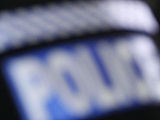Has Labour really created 3,000 new crimes?
Updated on 19 September 2006
Nick Clegg launches a campaign to get rid of "unnecessary" laws.

The Claim
"Since Tony Blair came to power, Labour has created more than 3,000 new criminal offences. That's almost one a day."
Nick Clegg, speech to Liberal Democrat party conference, 18 September 2001.
Background
Setting out the stall for his party's liberal credentials, home affairs spokesman Nick Clegg used the Liberal Democrats' annual conference to launch a campaign to get rid of "unnecessary" laws.
The Great Repeal Act campaign highlights 10 laws that the Lib Dems say should be scrapped, including restrictions on protest in Parliament Square and new legislation on ID cards.
The party is also inviting members of the public to nominate laws it thinks are unnecessary, unfair or just plain silly.
Clegg cited an "alarming statistic" that he uncovered over the summer: the 3000-plus offences that have been created under Labour. The hard-hitting figure sounds like a pretty damning condemnation of what the Lib Dems see as Labour's heavy-handed approach to law-making and need to be seen as tough on crime.
But are things really that straightforward? Has Labour really created that many new offences?
Analysis
The Government may be known for its love of league tables on everything from school exam results to hospital performance, but statistics on the number of new criminal offences are not held centrally.
Clegg's claim is based on a trawl through the statutes and from parliamentary questions submitted to various departments.
What are all these new crimes? Broken down department by department, the Department for the Environment and Rural Affairs (DEFRA) tops the offence-creation table; it was responsible for 640 new offences, around one fifth of the total.
Some of DEFRA's contribution can seem obscure, even laughable. As Clegg pointed out in his speech, it is now (well, since the Natural Environment and Rural Communities Act 2006) illegal to sell a grey squirrel.
Rogue squirrel-peddling may not be high on many people's criminal radars - suggesting that these are not necessarily the kind of offences that will keep the average citizen awake at night.
In DEFRA's case, though, its high number is largely a sign of the rural times; many of its new offences were introduced in response to the BSE and foot and mouth crises.
From other departments, examples of offences created in response to new concerns include those relating to mobile phones, data protection and the recent change to the gambling laws. Some of the foreign office's 227 new offences relate to UN sanctions in Iraq, Somalia, the former Yugoslavia and others.
So how do the extra offences affect the country's criminal law landscape? The answer is not as clear-cut as simply saying that there are 3000 extra crimes, as some of the new offences amend or replace existing legislation.
The 2003 Sexual Offences Act, for example, created 61 new offences, but many of these were updates of existing laws on matters such as rape.
The Lib Dems' figures also mention 11 new offences, including nine racially aggravated offences, created by the Crime and Disorder Act 1998.
According to Baroness Scotland (when questioned in parliament in 2005), these nine offences were based on "existing offences and do not render unlawful behaviour which would otherwise have been lawful". More of a fine-tuning, then, rather than the creation of a whole new crime.
Nine offences are a small drop in a 3000-strong ocean, but it does suggest there are shades of grey in the figures.
Still, Clegg's claim does seem to reflect the reality.
"Broadly, there's a trend within New Labour thinking that more and more issues relating to social matters and civil issues are dealt with through the criminal system," said Enver Solomon, deputy director of the Centre for Crime and Justice Studies at King's College, London.
"Certainly the tentacles of the criminal justice system have spread ever wider."
Based on a trawl through the statute books, the civil liberties campaign group, Liberty, has estimated that a total of 494 offences were created under the Conservative government between 1988 and 1996.
Although it's wise to be careful when comparing statistics compiled from different sources, this suggests further that Labour has created far more offences than its predecessor.
FactCheck Rating: 1.5 (How ratings work)
Verdict
Clegg seems to be on pretty solid ground. The government does seem to have created an unusually high number of offences, although gauging exactly how draconian the legislation is, or how much it has been used, is more complex.
Closer examination of the offences behind the headline figure shows that some are amendments of existing offences, rather than a simple addition to the amount of offences in the country in total.
And some of the new offences, such as those relating to the foot and mouth crisis, are now effectively unused.
Sources:
Speech by Nick Clegg
Lords Hansard, 24 November 2005
King's College London
Liberty Human Rights
Your view
You've read the article, now have your say. We want to know your experiences and your views. We also want to know if there are any claims you want given the FactCheck treatment. Email factcheck@channel4.com
FactCheck will correct significant errors in a timely manner. Readers should direct their enquiries to the Editor at the email address above.









